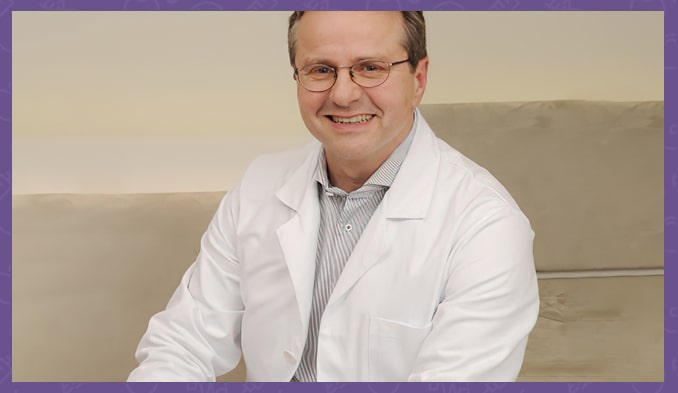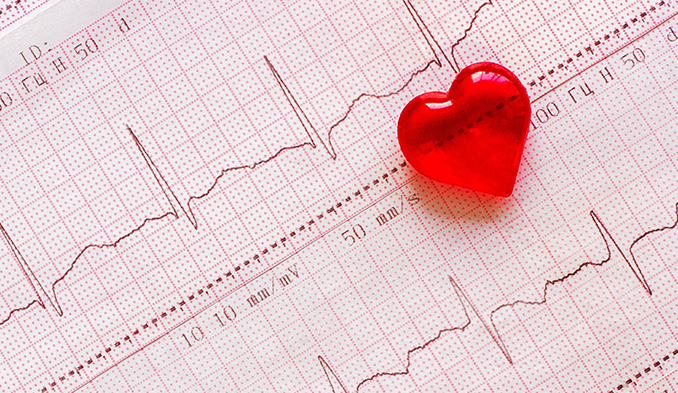Do heart diseases only manifest in old age?
How a person trains his body from a young age determines to what extent his heart vessels and muscles enable him to age. Exercise deficiency and obesity can lead to diabetes, hypertension or heart failure. In this regard, it is good to prevent heart disease in youth and adolescence. If hyperlipidaemia is diagnosed at an early stage, various preventive measures, such as diet, sports and drug therapy, can be taken. A disease that develops in adolescence and leads to atherosclerosis with coronary heart disease е familial hyperlipidemia. This is a genetic disease, but its early treatment can positively affect the patient's results.
Is our heart "recovered" thanks to angioplasty and stenting and bypass surgery?
Both stenting and bypass surgery are intended for revascularization of the heart in patients with corresponding perfusion disturbances caused by narrowing of the coronary arteries, in order to improve blood supply and pump function of the heart. Inflammatory diseases of the heart, including atrial fibrillation, (peri)myocarditis and congestive heart failure do not affect revascularization well.
Are only humans suffering from heart disease?
Both humans and animals suffer from heart disease. As a result of stress, for example, pigs in slaughterhouses die of heart attacks. Due to dilated cardiomyopathy, dogs develop congestive heart failure with severely reduced ejection fraction and shortness of breath. Compared to humans, however, animals stop consuming food when they get full.
Are there food restrictions when taking cholesterol-lowering medication?
The most important risk factor for atherosclerosis, which affects the coronary arteries and peripheral vasculature, is hypercholesterolaemia. Lipid-lowering agents, such as statins, cholesterol resorption inhibitors, bempedoic acid and PCSK9 inhibitors, which reduce the degradation of LDL receptors, are now a standard tool in the field of preventive cardiology. Nevertheless, they are most effective only on a diet that restricts lipids and carbohydrates.
Does the consumption of certain "superfoods" prevent the development of heart disease?
In terms of heart disease, the problem is the amount of food consumed! In order to eat, man once had to run long distances to catch his food or to dial it in. Today, however, one does not have to make such an effort; one can find everything one needs anywhere. Heart-healthy superfoods are vitamins, antioxidants and unsaturated fatty acids. The so-called omega-3 fatty acids are essential lipids precisely because the human body cannot obtain them on its own. Natural unsaturated fatty acids that improve left ventricular failure, reduce hypertension and counteract the development of atherosclerosis. They can be procured from butter, fish and nuts. Nevertheless, overconsumption of these foods can harm myocardial function through obesity, and hypertension and liver failure subsequently.
Is tobacco use associated with heart disease?
According to the Interheart study, which involved 135 000 patients, there was a linear relationship between the amount of cigarettes smoked and the risk of coronary heart disease.
Is it common for older adults to have the higher blood pressure?
High blood pressure is associated with the heart having more work to do. Hypertrophy of the muscular structures of the heart, with impaired relaxation, may result precisely from the increased work of the heart. It is called diastolic dysfunction. This is the initial prerequisite for the development of atrial fibrillation, which carries a high risk of embolic stroke, as well as reduced ventricular pump function, with the patient experiencing difficulty breathing and fatigue. Current recommendations are that systolic blood pressure be <135 mmHg and diastolic <85 mmHg.
After a heart attack, does the patient need to completely restrict physical activities?
After a myocardial infarction, regular physical activity increases the amount of endothelial progenitor cells and improves left ventricular function. This leads to angiogenesis and revascularization of the heart. According to the European guidelines, exercise after a heart attack is class 1 indicated with level of evidence A.
Is it true that if the necessary medication for diabetes is taken, it will not lead to the development of heart disease?
Prolonged diabetes is most often associated with atherosclerosis, which can cause:
- coronary heart disease;
- cerebrovascular disease;
- Peripheral arterial disease.
Patients with three-vessel coronary artery disease, surgical revascularization usually yields better results than endovascular therapy. It has been shown that anti-diabetic drugs can lower the risk of cardiovascular disease in patients suffering from coronary heart disease.
Some new drugs, such as SGLT 2 inhibitors, positively affect heart failure and lower the need for hospital admission in patients:
- с reduced ejection fraction (HFrEF)
- With heart failure with preserved ejection fraction (HFpEF).
Should we worry about the mild heart attack?
Adverse coronary events (including nonfatal myocardial infarction) increase the risk of cardiovascular disease and worsen the patient's prognosis.
- However, mild non-ST-segment elevation myocardial infarction (NSTEMI) is most often confined to the endocardium. It is associated with less loss of myocardial viability. It is also associated with better preserved pumping function of the heart and thus with less air insufficiency.
- Transmural myocardial infarction in ST-segment elevation myocardial infarction (STEMI) can result in transmural damage as well as scarring of the heartto reduce its systolic function.
About Prof. Dr. Christoph Kopp
Prof. Dr. Kopp is a specialist in internal medicine, cardiology and angiology at Wiener Privatklinik in Austria.
CV and professional development:
- 1992: PhD in Human Medicine at the University of Vienna;
- 1993 - 1996: research fellow at Harvard Medical School (HMS), Beth Israel Deaconess Medical Center (BIDMC), Boston, Massachusetts;
- 1997 - 2004: specialisation in internal medicine with specialisation in angiology, cardiology, intensive care medicine, oncology and neurology in Vienna, together with a Venia docendi degree in internal medicine;
- Since 2012: collaborating physician at JUVENIS;
- 2014: Master of Business Administration after completing an MBA in Healthcare Management;
- Currently: head of the Departments of Angiology and Cardiology at the Department of Internal Medicine II at the Medical University of Vienna, Austria and attending physician in the specialty at the Wiener Privatklinik.
Memberships:
- Since 2001: member of the vascular interventions team;
- Since 2007: member of the cardiology intervention team.
Clinical areas of interest:
- Personalized cardiovascular medicine;
- Coronary and peripheral angiography and intervention;
- Healthcare Management;
- Removal of varicose veins;
- Echocardiography;
- ECG/Rhythmology;
- Blood pressure regulation;
- Coronary angiography + stent intervention;
- Peripheral angiography + intervention;
- Condition of peripheral vessels, incl. ultrasound.










